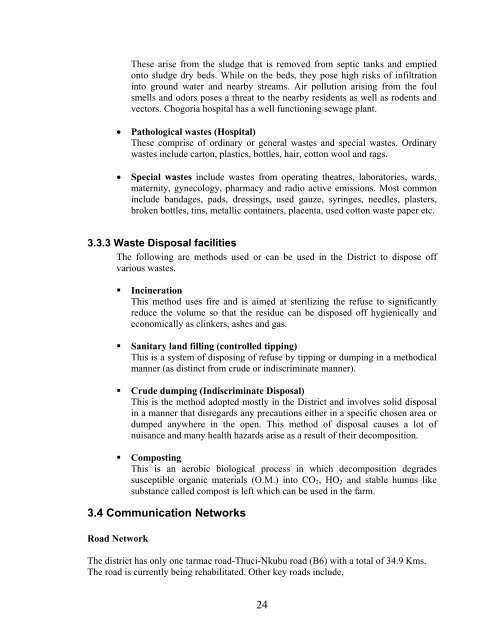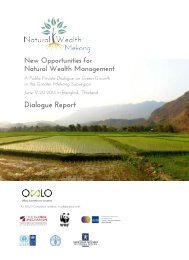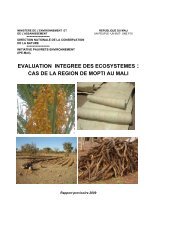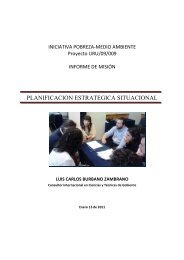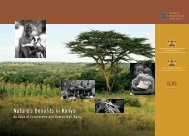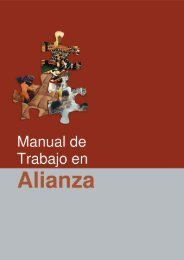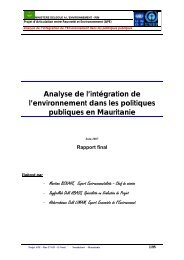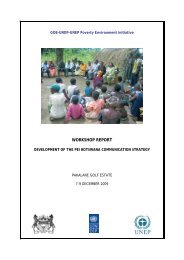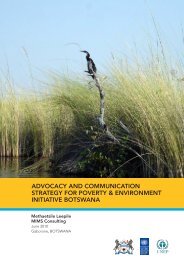Meru South District - UNDP-UNEP Poverty-Environment Initiative
Meru South District - UNDP-UNEP Poverty-Environment Initiative
Meru South District - UNDP-UNEP Poverty-Environment Initiative
You also want an ePaper? Increase the reach of your titles
YUMPU automatically turns print PDFs into web optimized ePapers that Google loves.
These arise from the sludge that is removed from septic tanks and emptied<br />
onto sludge dry beds. While on the beds, they pose high risks of infiltration<br />
into ground water and nearby streams. Air pollution arising from the foul<br />
smells and odors poses a threat to the nearby residents as well as rodents and<br />
vectors. Chogoria hospital has a well functioning sewage plant.<br />
• Pathological wastes (Hospital)<br />
These comprise of ordinary or general wastes and special wastes. Ordinary<br />
wastes include carton, plastics, bottles, hair, cotton wool and rags.<br />
• Special wastes include wastes from operating theatres, laboratories, wards,<br />
maternity, gynecology, pharmacy and radio active emissions. Most common<br />
include bandages, pads, dressings, used gauze, syringes, needles, plasters,<br />
broken bottles, tins, metallic containers, placenta, used cotton waste paper etc.<br />
3.3.3 Waste Disposal facilities<br />
The following are methods used or can be used in the <strong>District</strong> to dispose off<br />
various wastes.<br />
Incineration<br />
This method uses fire and is aimed at sterilizing the refuse to significantly<br />
reduce the volume so that the residue can be disposed off hygienically and<br />
economically as clinkers, ashes and gas.<br />
Sanitary land filling (controlled tipping)<br />
This is a system of disposing of refuse by tipping or dumping in a methodical<br />
manner (as distinct from crude or indiscriminate manner).<br />
Crude dumping (Indiscriminate Disposal)<br />
This is the method adopted mostly in the <strong>District</strong> and involves solid disposal<br />
in a manner that disregards any precautions either in a specific chosen area or<br />
dumped anywhere in the open. This method of disposal causes a lot of<br />
nuisance and many health hazards arise as a result of their decomposition.<br />
Composting<br />
This is an aerobic biological process in which decomposition degrades<br />
susceptible organic materials (O.M.) into CO2, HO2 and stable humus like<br />
substance called compost is left which can be used in the farm.<br />
3.4 Communication Networks<br />
Road Network<br />
The district has only one tarmac road-Thuci-Nkubu road (B6) with a total of 34.9 Kms.<br />
The road is currently being rehabilitated. Other key roads include,<br />
24


